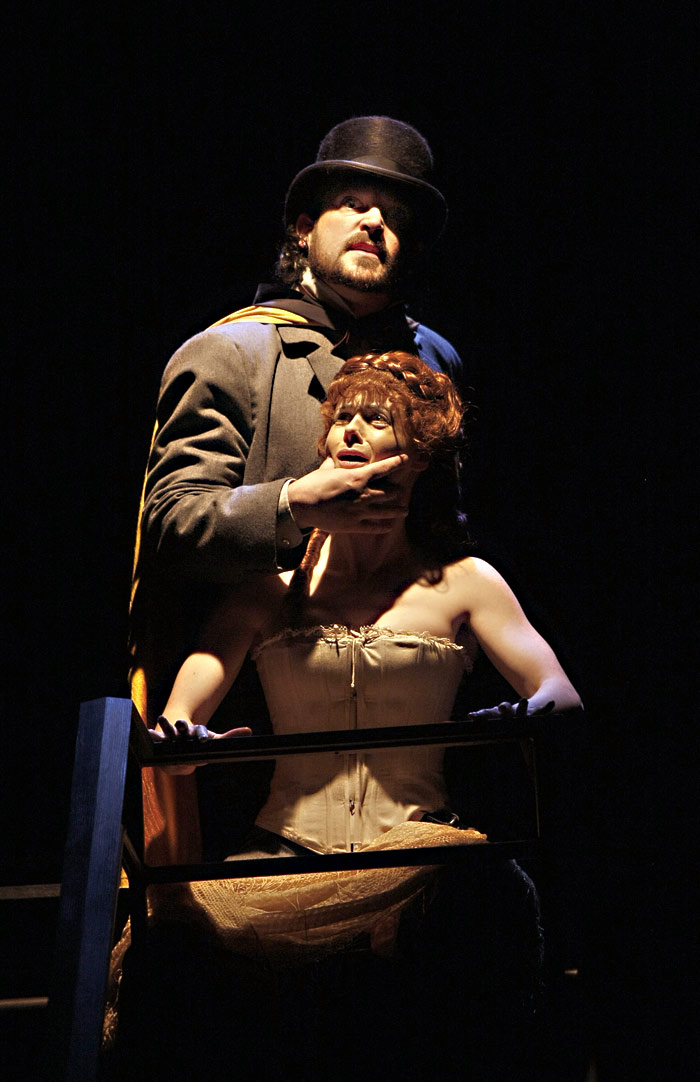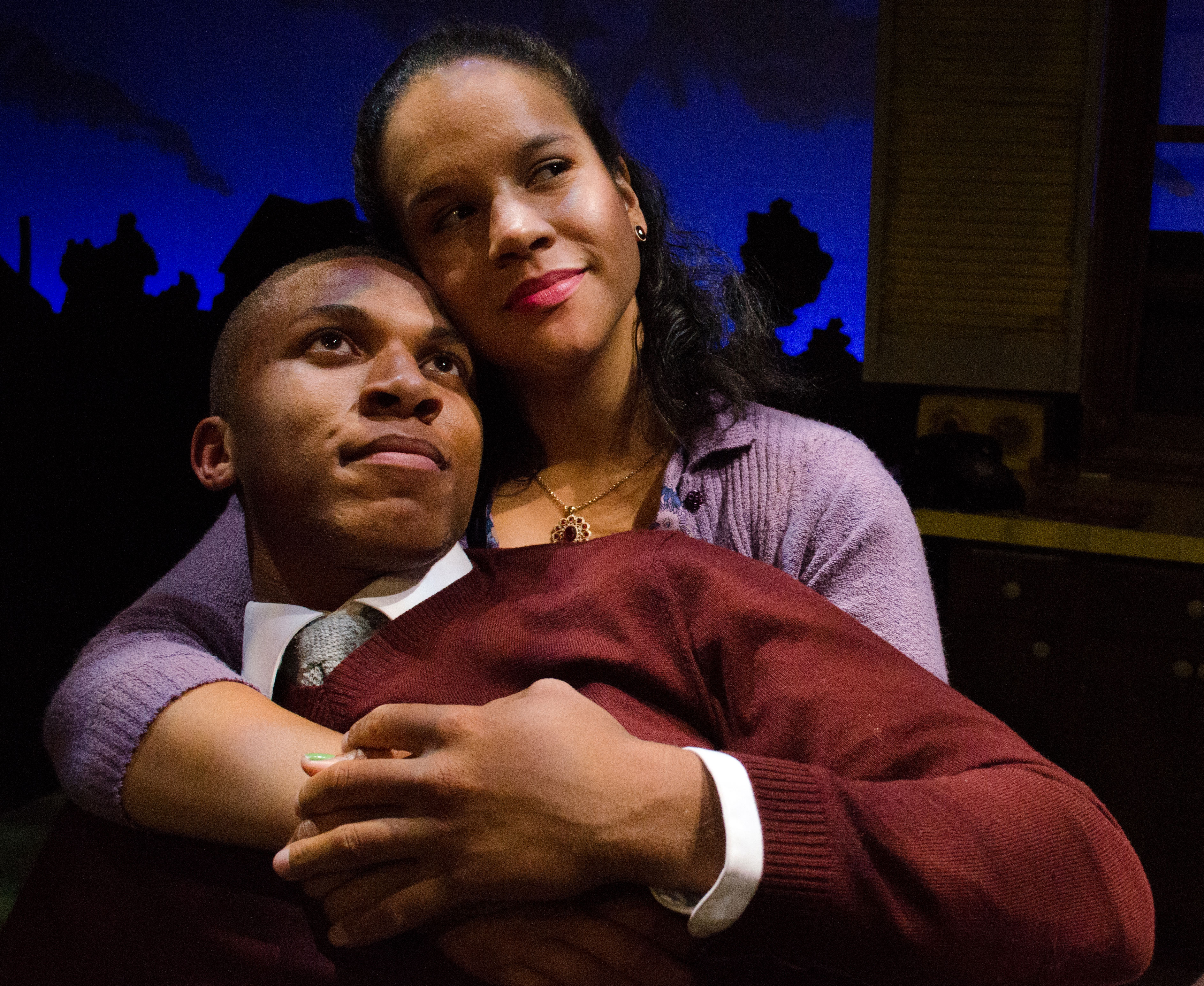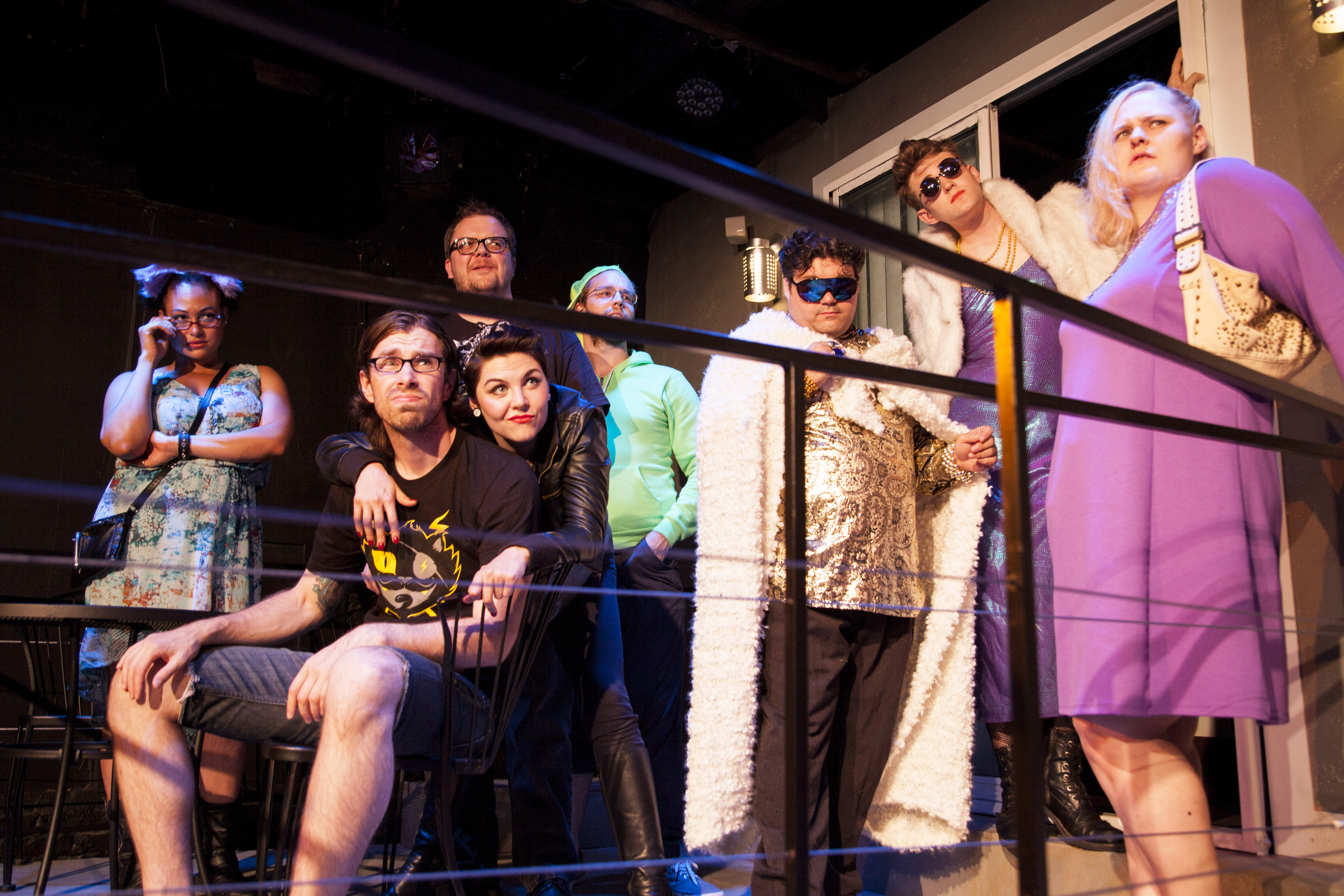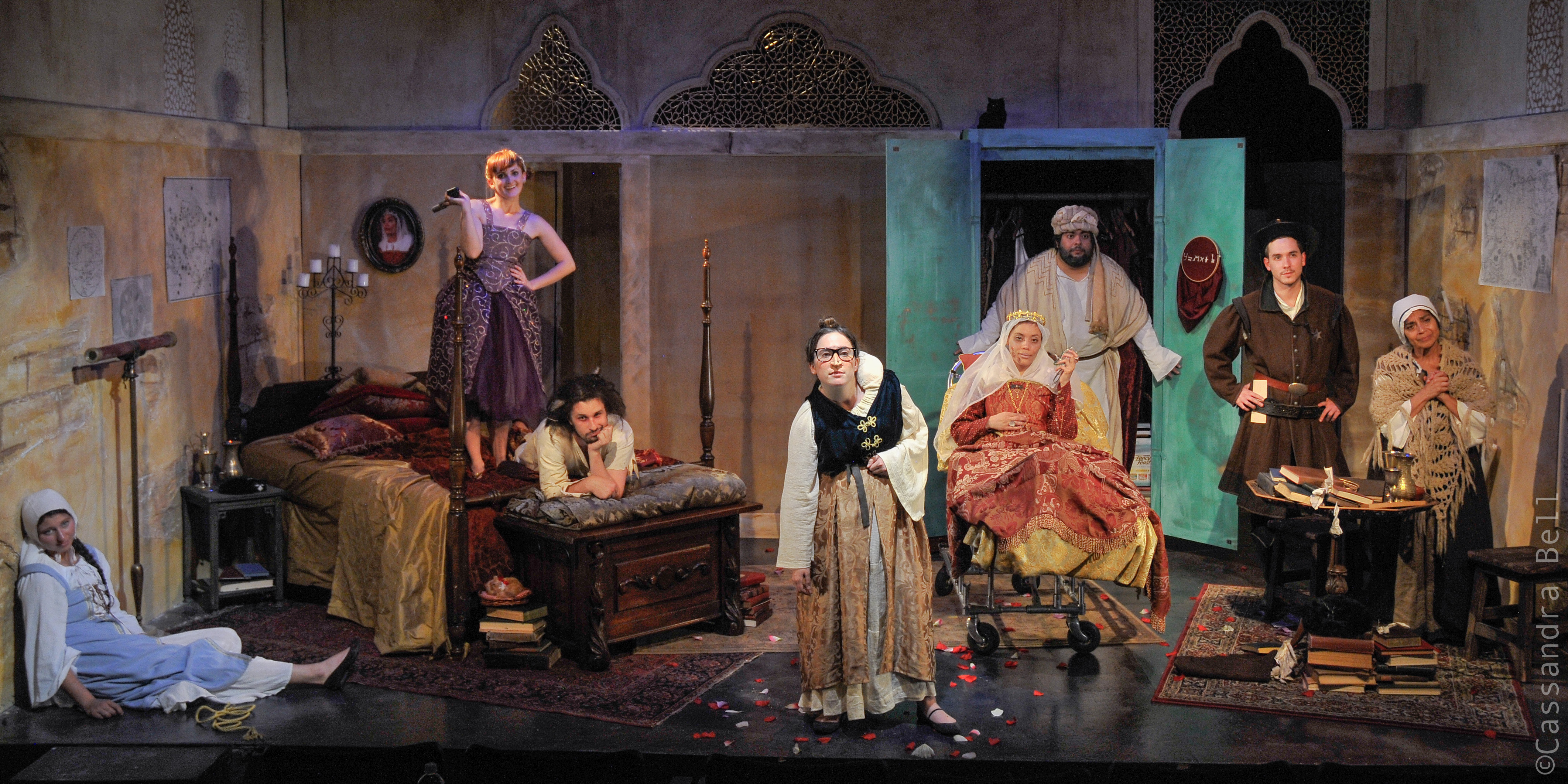Robert Louis Stevenson’s allegorical tale of duality and the arrogance of believing that man can vanquish his animalistic nature has been a source of public fascination since its first publication in 1886. And why not? We’re all entranced by our secret impulses, and the stories of great and infamous people who have struggled with them are irresistible too.
So how to breathe new life into a timeless story that’s nonetheless yellowed with age? How to compete with Saw‘s Jigsaw, not to mention the many real and imagined villains who have chipped away at our collective shockability with their appetites for destruction?
ACT finds the answer in Jeffrey Hatcher’s new adaptation of the classic novella, which posits that Hyde dwells in each of us—and underlines the point by having each member of the supporting cast take a turn inhabiting the character. The only person not playing Hyde is Bradford Farwell, who takes Jekyll from insouciance to the maddening realization that he’s been outsmarted by someone who thinks with his fists.
This production pays a hefty ransom in homage to director R. Hamilton Wright’s other inspiration—the rogue’s gallery of Universal movie monsters from the 1930s who were endlessly recycled on television before the advent of cable TV. So there’s some of the Victorian stuffiness of The Mummy, moralizing reminiscent of The Wolf Man, and nods to the obsessive compulsions of Henry Frankenstein (not the novel’s Victor) in defying nature and forces greater than himself.
Then there’s that thing everybody wants to see: The Transformation, in which mild-mannered Jekyll becomes the rapacious Hyde. Playwright Hatcher knows what we’re there for, and so does Wright, and it becomes a delicious tease that pays huge dividends in the second act. Just as Dracula will eventually turn into a bat or slip his canines into the jugular of a comely lass, it’s going to happen, but as we used to say when I was a spellbound kid watching it on Shock Theater with the lights out, when it finally does happen…it’s Just Sooo Cool.
Farwell makes a splendid Jekyll, all hubris and aristocratic bearing; Sylvie Davidson, as Elizabeth, does the show’s heaviest lifting in making her attraction to a monster convincing. David Pichette offers a snarling Hyde and a gentleman’s companion as Utterson, and Deborah Fialkow gender-bends her way through a series of thankless roles that help get the story across. Brandon Whitehead gives a tongue-in-cheek performance as Jekyll’s nemesis, and David Anthony Lewis makes the most of Hyde as he’s typically portrayed: a fire-breathing minotaur in evening cloak and top hat, brandishing his cane as a club. (But when he’s playing his Dr. Lanyon as a Scotsman, the word “wife” becomes “waffe,” as if South Park‘s Cartman suddenly took control of his larynx.)
The director may be working from the template of horror movies, but Matthew Smucker provides a sturdy and imaginative set that uses the ACT stage to maximum effect. Lights, sound, and costumes all make a statement, but each is muted to keep the focus on Jekyll’s slow undoing. It’s all the stuff of brilliance, and long after the boogeyman fable ends, the show’s basic question still hangs in the air: What are you hiding?








